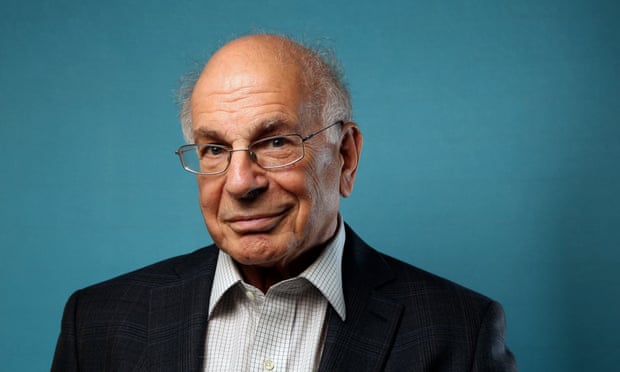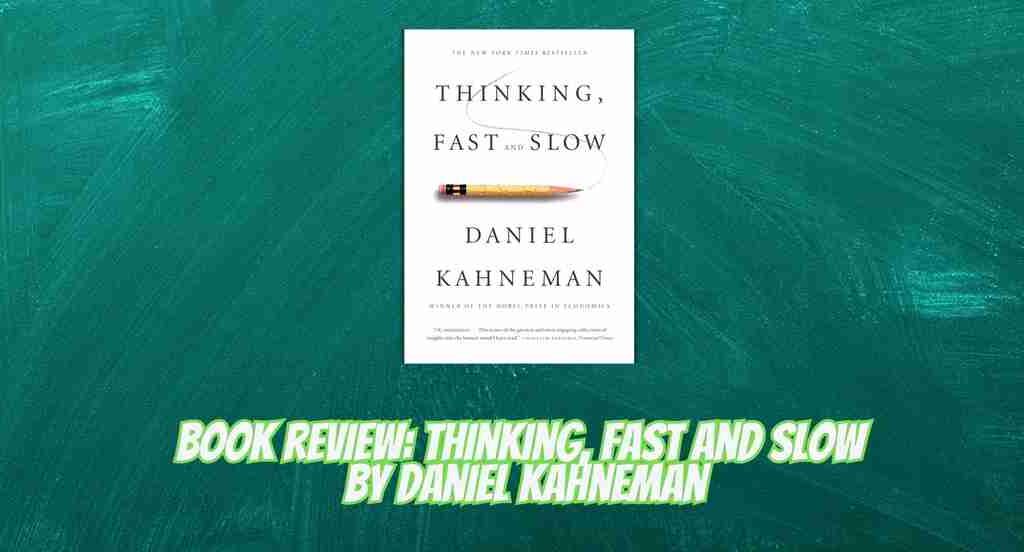No products in the cart.
Arts and Literature, Book Review
Thinking Fast And Slow by Daniel Kahneman
Thinking Fast and Slow emphasizes psychological insights and decision-making processes to the exclusion of anecdotes. Nevertheless, an illustrative instance from the book pertains to an experiment that Kahneman and his colleague Amos Tversky called the Linda Problem.
The participants were given two descriptions of a woman named Linda as part of the experiment. Linda was described in one account as a bank teller interested in political activism and the other simply as a bank teller. The participants were requested to evaluate the probability of various situations, including Linda working as a bank teller or Linda identifying as a feminist bank teller.
Author Profile

Daniel Kahneman is an Israeli-American author, psychologist, and economist best known for his research on hedonic psychology, or the psychology of judgment and decision-making. He is especially well-known for his contributions to behavioral economics, for which he received the Nobel Memorial Prize in Economic Sciences in 2002.
10 Lessons from the book Thinking, Fast and Slow by Daniel Kahneman
- Dual Systems of Thinking: Kahneman introduced the notion of dual thinking systems. System 1 functions with greater automation and velocity, whereas System 2 emphasizes deliberation and analysis. A comprehension of these systems sheds light on cognitive processes.
- Cognitive Biases: A multitude of cognitive biases that impact the process of decision-making are delineated in the book. Among them are overconfidence, the availability heuristic, anchoring, and others. Understanding these biases can augment one’s capacity for critical thought.
- Prospect Theory: How individuals assess prospective outcomes and arrive at decisions grounded in perceived gains and losses is elucidated by Kahneman and Tversky’s Prospect Theory. The implications of this theory for comprehending human decision-making are extensive.
- Loss Aversion: Individuals usually dread losses more than they appreciate gains of similar worth, according to the concept of loss aversion. This bias can have an impact on many aspects of life’s decision-making.
- Endowment Effect: The book delves into the endowment effect, a psychological phenomenon in which individuals attribute greater worth to objects simply by their ownership. With the awareness of this bias, one can make more logical decisions.
- Impact of Framing: Kahneman examines how information is conveyed or framed, which can profoundly influence how individuals make decisions. It is essential to comprehend preparing effects to make informed decisions.
- Planning Fallacy:The planning fallacy is introduced in the book, in which readers tend to overestimate the rewards while underestimating the time, expenses, and risks connected with future actions. Being aware of this prejudice may lead to better pragmatic thinking.
- Hedonic Psychology: Kahneman analyzes the distinction between the experiencing self and the remembering self in his work on hedonistic psychology. This discovery sheds light on how people remember and understand their experiences, which influences their decision-making.
- Regression to the Mean: Regression to the mean explains the tendency for more average events to follow extreme events. Misunderstandings of random events can be avoided by understanding this phenomenon.
- WYSIATI (What You See Is All That Is): Kahneman explains how individuals frequently base their decisions on incomplete information that is readily available. Acknowledging the constraints of the information at hand is imperative to arrive at informed decisions.
My Thoughts
Thinking, Fast and Slow focuses on psychological insights and decision-making, often without relying on anecdotes. An example from the book is the Linda Problem experiment by Kahneman and Tversky. In this experiment, participants evaluated the probability of different scenarios involving Linda, who was described either as a bank teller with political interests or just a bank teller. This demonstrated how people assess probabilities and how certain details can influence their judgments.

4.6 out of 5 out of 44,234 ratings
If you like reading this, please like and share my page, DIARYNIGRACIA PAGE. Questions or suggestions, send them to diarynigracia@gmail.com You may also follow my Instagram account featuring microliterature, visit DIARYNIGRACIA INSTAGRAM.
READ MORE AND SHARE!
2023 Your Practical Wedding Guide
Investments and Finance Ultimate Guide
A Devotional Journal: Thankful from Within
Book Shop
Ultimate Stock Market


Peace and love to you.